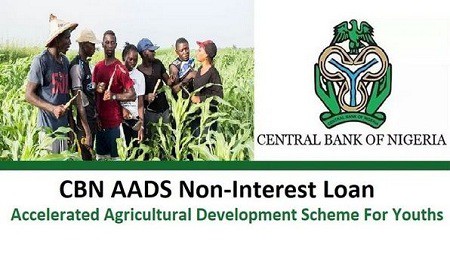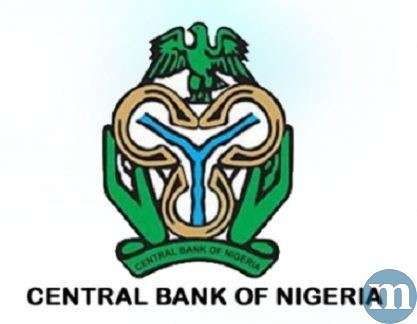CBN’s Non-interest Funding Initiative Raises Hope for Economy: The Central Bank of Nigeria’s (CBN’s) Non-interest Financial Institutions (NIFIs) initiative was created to inject affordable and sustainable finance into businesses in major sectors of the economy.
The priority schemes- Accelerated Agriculture Development Scheme, N50 billion cash for the textile sector, Agri-business, Small and Medium Enterprise Investment Scheme, Non-oil Export Stimulation Facility, Anchor Borrowers’ Programme and the Creative Industry Financing Initiative have played major roles in bringing hope to people and businesses in targeted segments of the economy.
Aside from creating employment for the people, the schemes have contributed to the CBN’s financial inclusion plan meant to bring banking closer to the people at all segments of the economy including grassroots.
READ ALSO: 5M Candidates Applied for Npower Batch C Enrollment – Sadiya Farouq
Thriving economies always have two things in common. First is access to affordable and sustainable finance. Next is easy access to financial services at all levels of the society- especially at the grassroots.
Although these issues are still not fully realised in Nigeria, the country has made steady and sustained efforts at getting funding to key sectors of the economy and ensuring that more people are included in the financial services net.
According to the Central Bank of Nigeria (CBN), financial inclusion is achieved when adult Nigerians have easy access to a broad range of formal financial services that meet their needs at affordable costs.” The services include but are not limited to, payments, savings, credit, insurance, pension and capital market products.
That explains why the CBN has launched intervention schemes aimed at increasing access to finance by non-interest financial institutions.
Recommended posts:
- Maltina Teacher of the Year Award 2024
- Federal Civil Service Structure and Grade Levels
- Andela Salary Structure And How Much They Pay Staff
- Nigeria Airforce Registration Portal 2024 – www.airforce.mil.ng
- NCEE Common Entrance Examination Timetable for Unity Schools 2024
- Top 10 Insurance Companies in Nigeria – Updated List
- NECO BECE Timetable 2024 for JSS 3 Candidates [Junior WAEC Exam]
- NECO SSCE Timetable for 2024 October/November Exam – OFFICIAL
- Npower August News Update Today 2024 | Daily Stipend & Salary Updates
- ESUT Post UTME / DE Screening Form 2024/2025 Academic Session
- Delta State Poly Ozoro (DSPZ) Post UTME Form 2024/2025
- Kogi State Polytechnic Post UTME Form 2024/2025
- How to Upload Credentials on Oyo TESCOM Portal – tescom.jobportal.oyostate.gov.ng
A circular that was signed by the apex bank’s Director in charge of the Financial Policy and Regulation Department, Kevin Amugo, listed some of the schemes as Accelerated Agriculture Development Scheme (AADS), N50 billion cash for the textile sector, Agri-business, Small and Medium Enterprise Investment Scheme (AGSMEIS), Non-oil Export Stimulation Facility, Anchor Borrowers’ Programme, the non-interest version of the Creative Industry Financing Initiative among others.
Amugo said the overall objective of these interventions is to promote financial inclusion in the country.
He explained that each of these intervention schemes has various purposes and objectives. The AADS, for example, is aimed at reducing unemployment in Nigeria by funding agriculture production initiatives that will engage as much as 370,000 youths over the next three years.
It required that average financing size of N250,000 per hectare for arable crops; N500,000 per unit for livestock; and N1.5 million for plantation crops like cocoa, cashew and oil palm.
Similarly, the Non-Interest Guidelines for Intervention in Textile Sector is intended to resuscitate Nigeria’s textiles industry by providing “a N50 billion special mechanism for the restructuring of existing facilities and provision of further facilities for textile companies with a genuine need for intervention.”
The fund will be administered by Bank of Industry (BOI) at 4.5 per cent interest rate using any of the CBN- approved non-interest financing instruments for refinancing of existing projects, long term financing for the acquisition of plant and machinery and working capital for the beneficiaries.
The apex bank said the fund will be used to resuscitate ailing textile sector, restructuring of existing facilities and provision of further facilities for textile companies with a genuine need for intervention.
According to the apex bank, the seed fund which is a one-off intervention will terminate by December 31, 2025, with the maximum financial amount pegged at N2 billion for a single obligor in respect of new facilities and N1 billion for refinancing.
The regulator disclosed that the plan to turnaround the textile sector was perfected after a meeting between the CBN Governor, Godwin Emefiele and owners of textile mills in Nigeria.
“The resolutions reached at the meeting were that the Textile Mills articulate the status of their Bank of Industry (BOI) Cotton Textile and Garment (CTG) Loans stating their outstanding loan balances, tenure, interest rate, interest payment and the assistance being sought from CBN,” Amugo said.
READ ALSO: Oyo State Tescom CBT Timetable & Exam Slip 2024
The eligibility criteria for participation in the scheme indicated that any textile company with an existing facility in the books of BOI under the CTG scheme, any textile company with existing facilities in Deposit Money Banks /Non-Interest Financial Institutions (NIFIs), textile companies that are not participating under the Small and Medium Enterprises/Restructuring/Refinancing Fund (RRF) are qualified while projects financed before June 2009 (inception of the BOI CTG Loan) shall not be eligible to participate.
According to the rule for accessing the fund, existing benefiting companies are expected to submit requests to BOI for consideration on a case by case basis while the BOI’s consideration of the applications shall be subject to approval by the CBN.
Also, each request for refinancing must be accompanied with a request from Deposit Money Banks (DMBs) seeking to transfer the facilities to BOI, three years financials including the latest management account of the obligor and copies of duly executed offer documents between the bank and the obligor evidencing the existence of a facility.
“The BOI is to restructure/refinance existing facilities, finance projects using any of the CBN- approved non-interest financing instruments such as Murabahah (cost plus mark-up sale) for the acquisition of plant and machinery. Others are Ijarah (lease-to-own); Istisna’ (manufacture/construction and sale) and diminishing Musharakah (diminishing contractual partnership) for asset acquisition and working capital financing,” the apex bank stated.
CBN Agri-business, Small and Medium Enterprise Investment Scheme
Also, the AGSMEIS is an initiative of the Bankers’ Committee to support supports government’s policy measures and efforts for the promotion of agricultural businesses, micro, small and medium enterprises (MSMEs) as vehicles for sustainable economic development and employment generation.
The scheme is to improve access to affordable and sustainable finance by Agri-businesses and MSMEs, create employment opportunities in Nigeria.
It was also meant to boost the managerial capacity of agri-businesses and MSMEs to grow the enterprises into large corporate organisations in line with the Federal Government’s agenda to develop the real sector and promote inclusive growth.
READ ALSO: Oyo State Tescom CBT Timetable & Exam Slip 2024
The application of the fund shall be categorised into three broad components: debt (50 per cent), equity (45 per cent) and developmental components (five per cent) with N10 million financing limit for seven years tenor.
The indirect component shall constitute 45 per cent of the Fund which shall be channelled through SEC-licensed Islamic Fund Managers or Windows, for equity, quasi-equity and non-equity financing in agri-businesses and SMEs.
The terms of the equity investment shall be a limit of 40 per cent of investee company’s equity subject to a maximum of N2 billion, up to 10 years tenor with an initial lock-up period of three years.
“The Articles of Association of the investee company shall not have a covenant prohibiting divestment of equity investment of the Scheme. At the time of divestment, shareholders of the investee company shall have the right of first refusal,” it said.
The Quasi-equity investment shall include convertible Sukuk with subject to a maximum of N2 billion limit, and up to 10 years tenor. Other terms to be determined by the Fund Manager, subject to compliance with the principles of non-interest banking and finance”.
For the Non-Equity Financing, the debt financing shall include investment in, Shari’ah-compliant commercial papers and corporate Sukuk etc (excluding investment in Government bonds and Sukuk) of investee companies.
The portfolio shall be managed by the Fund Managers under the oversight of the Special Purpose Vehicle. The modalities include a maximum of N2 billion at five per cent interest rate per annum, and tenor of up to 10 years (depending on nature/gestation period of the project) and maximum of six months for coupon payment.
READ ALSO: FG Budgets N200 billion for MSMEs Support Loan with New Details
CBN Anchor Borrowers Programme
The non-interest guidelines for the Anchor Borrowers Programme (ABP) was also instituted to ensure that the programme, which has recorded several successes continues to impact the agriculture sector.
The ABP was designed to assist small-scale farmers to increase the production and supply of feedstock to agro-processors to create an ecosystem to link out-growers (smallholders) to local processors.
The programme has increased banks’ financing to the agricultural sector, enhanced capacity utilisation of agricultural firms involved in the production of identified commodities as well as the productivity and incomes of farmers.
Already over N240 billion revolving credit facilities granted to small-scale farmers and processors in the ABP, an indication of the CBN’s commitment to the agriculture sector both in terms of policy and funding.
For instance, the CBN’s policy, restricting forex for maize imports has also been applauded by stakeholders. The All Farmers Association of Nigeria (AFAN), Lagos State Chapter, applauded the CBN’s restricting importers of maize from accessing forex from the official window.
AFAN’s Chairman, Lagos State branch Femi Oke, said the restriction would enhance maize farmers output, issuing that local farmers would meet the demand created by the new policy.
Oke said CBN scheme such as ABP, Nigerian Incentive-Based Risk Sharing in Agricultural Lending (NIRSAL) loan and others would help farmers adding that there would be more output to serve the consumers.
He said maize importation always neglected efforts of local farmers in production, adding that the new policy would enable the country to be self-sufficient in maize cultivation.
READ ALSO: NECO Timetable 2024 for October/November Exam (SSCE INTERNAL)
He said: “If maize importation is being banned by the CBN, what this means is that our input and output here will be an increase to have enough patronage”.
Emefiele has also reiterated the opportunities in the creative industry hence the release of the non-interest guiltiness for the Creative Industry Financing Initiative. He said the sector remains a key source of growth for the economy creating up to one million jobs for the teaming youths and reduce Nigeria’s dependence on revenues from crude oil.
He said the impact of Coronavirus pandemic on the global economy and the containment measures that have been put in place to contain the spread of the virus, has led to a slowdown in global growth which has also affected the Nigerian economy.
In addition to the public health challenge, our country is faced with a revenue shock primarily driven by the 40 per cent drop in crude oil prices between January 2024 and now.
“Given our dependence on crude oil as a major source of government revenue, as well as for our foreign exchange earnings, these challenges have served to reinforce the need for stakeholders to promote policies and programs that will enable a greater diversification of the Nigerian economy,” he said.
He said with the growing demand for Nigerian music, movies and fashion, across Africa and in various parts of the globe, Nigeria’s creative industries, are spurring innovation, creating jobs, and helping to shape perceptions of Nigeria, as a nation with a strong spirit of creativity and ingenuity.
“We must do more to encourage the innovative works of these young talented Nigerians as they can make significant contributions to the growth and development of our country,” Emefiele added.


